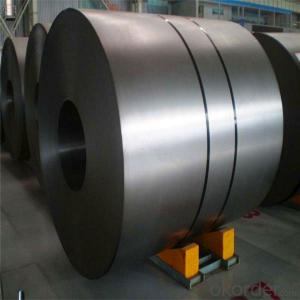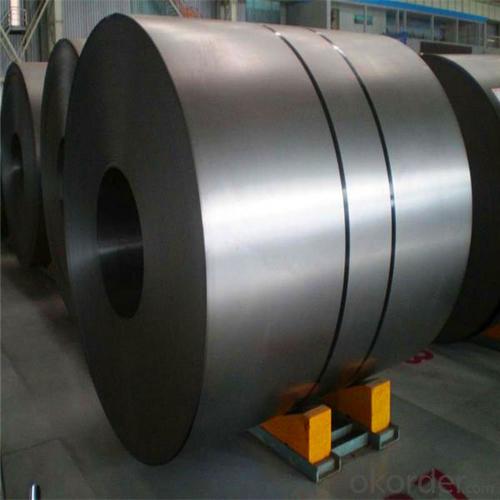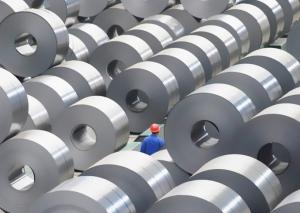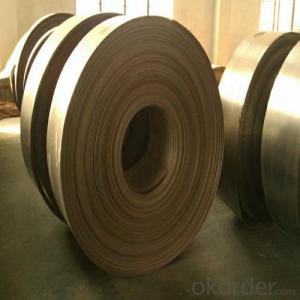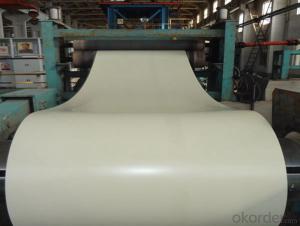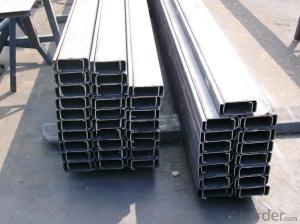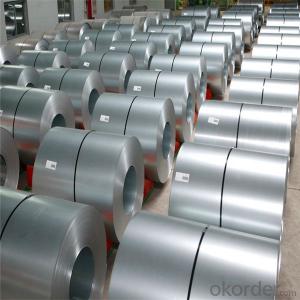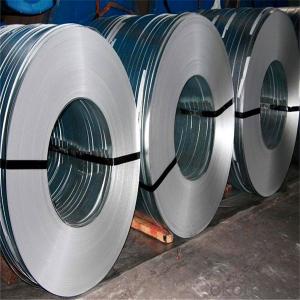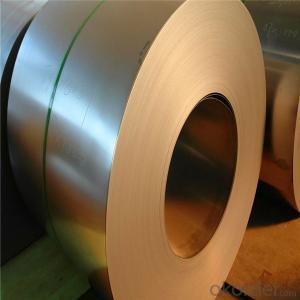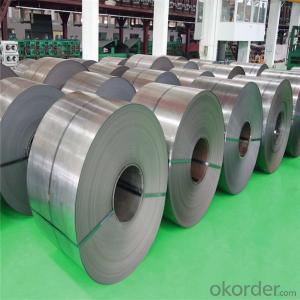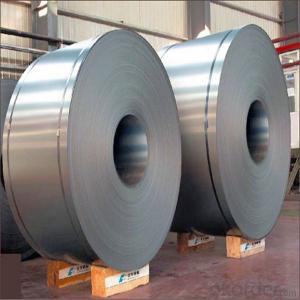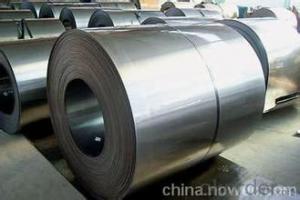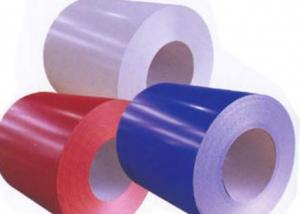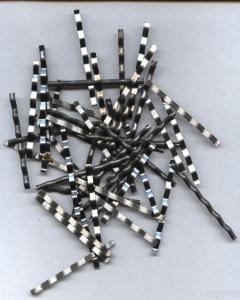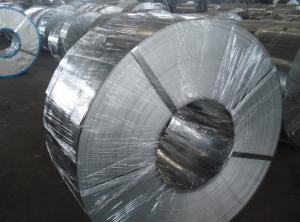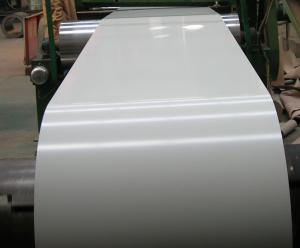Cold Rolled Steel Sheet/Coil Made in China China Supplier
- Loading Port:
- China main port
- Payment Terms:
- TT OR LC
- Min Order Qty:
- 20 m.t.
- Supply Capability:
- 50000 m.t./month
OKorder Service Pledge
OKorder Financial Service
You Might Also Like
Specification
Prime Quality SPCC Cold Rolled Steel Sheet/coil
Widely used to appliance,automobile industry or other decoration usage.
Certificate: ISO9001
Packing Details: Standard Export Packing.
Products Picture
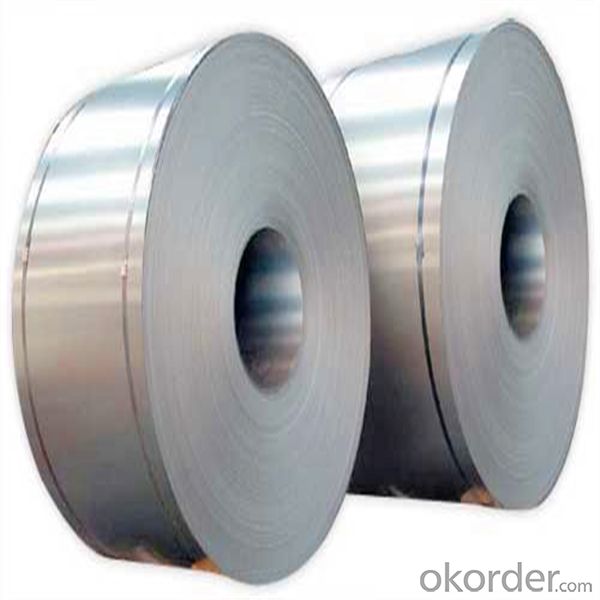
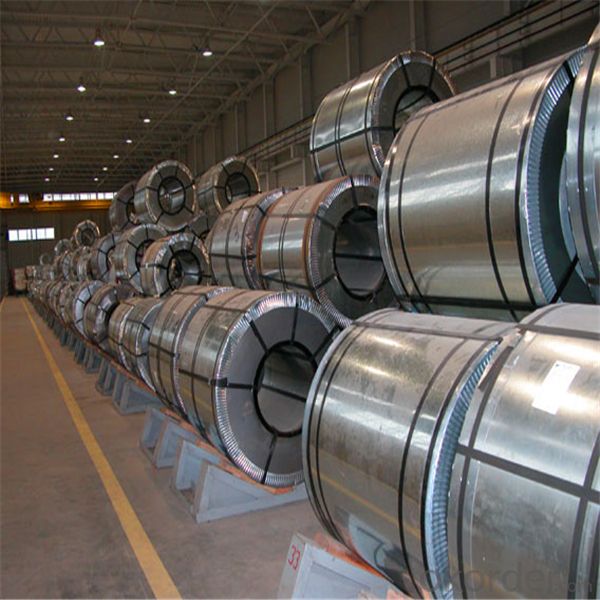
What is Cold Rolled Steel Coil?
Cold rolled steel coil is steel that has been worked below its recrystallization temperature by passing it between a pair of rollers. Recrystallization temperature is the temperature at which grains in the lattice structure of the metal have been rearranged, leaving it free of strain and deformations. Cold rolled steel coil is pre-treated before being cold rolled with a process known as pickling, which uses strong acids to remove scale and other impurities. The cold rolled steel coil is then passed through rollers to reduce its thickness. Most cold rolling takes place in multiple passes and as the size of the cold rolled steel coil is further reduced, its strength and hardness both increase, but its ductility decreases. After cold rolling, heating the metal up in a process known as annealing can restore some of its ductility. The final cold rolled steel coil may be manufactured in the form of sheets, strips, bars, or other forms.
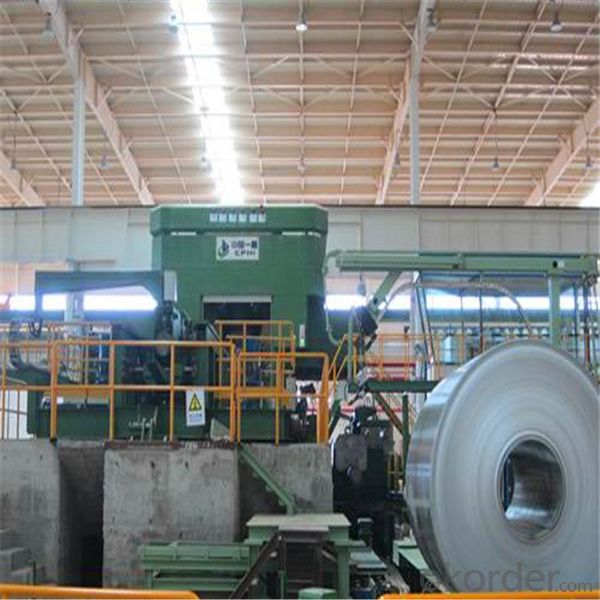
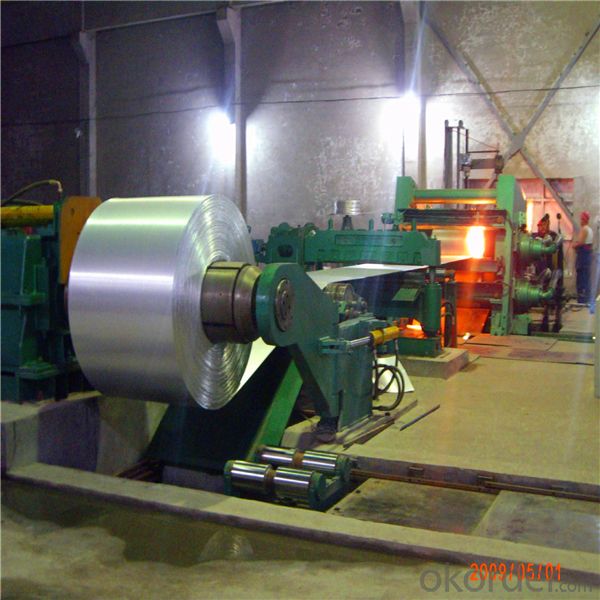
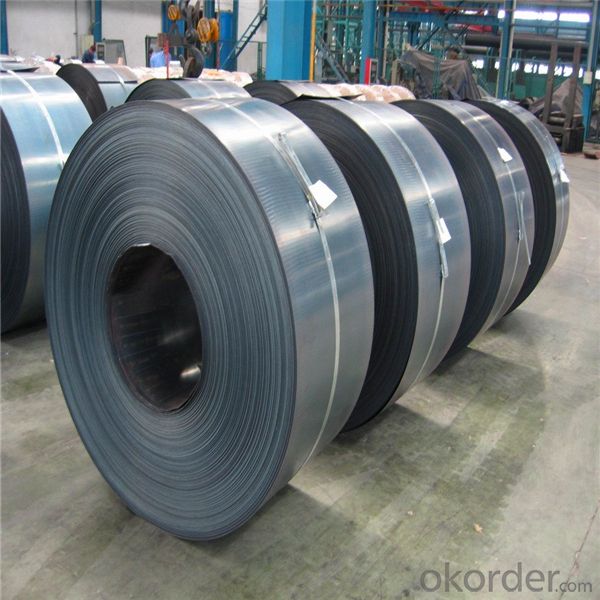
1. Q: Where is your company located? How can I visit there?
A: Our company is located in Beijing, China. Welcome to visit us.
2. Q: Can I get sample and how long will it take?
A:Yes. We can supply sample. And you need to pay for courier.
3. Q: What's the MOQ?
A: Our MOQ is 25mt.
4. Q: What's the delivery time?
A: It will take about 30 days after TT or L/C.
5. Q: What is the payment terms?
A: T/T, L/C at sight
6. Q: How does your factory carry out quality control?
A: We attach great importance to quality control.Every part of our products has its own QC.
7. Q: What certificate do you have?
A: We have SGS, ISO9001 etc.
- Q:How is steel used in the construction of stadiums and sports facilities?
- Steel is used extensively in the construction of stadiums and sports facilities due to its strength, durability, and versatility. It is used to create the structural framework, support the roof, and provide the necessary stability for large seating areas. Additionally, steel is used to construct staircases, escalators, and elevators within the facilities. Its use allows for the creation of spacious and open designs, ensuring the safety and comfort of spectators while also accommodating various sports activities and events.
- Q:What are the different types of steel fasteners used in construction?
- There are several different types of steel fasteners commonly used in construction, including bolts, screws, nails, and rivets. These fasteners are essential for joining various components together, providing strength and stability to structures. Bolts are typically used for heavy-duty applications, while screws are versatile and can be used in multiple construction projects. Nails are commonly used for fastening wood materials, and rivets are frequently used to join metal components together. Each type of steel fastener has its own unique characteristics and uses, ensuring that construction projects are secure and durable.
- Q:How do steel products contribute to the agricultural and farming sector?
- Steel products play a crucial role in the agricultural and farming sector by providing durable and efficient equipment. From tractors and harvesters to storage silos and fencing, steel products offer strength and longevity, allowing farmers to increase productivity and yield. Additionally, steel structures such as barns and sheds provide essential shelter for livestock and equipment, ensuring their safety and well-being. Overall, steel products contribute to the modernization and efficiency of the agricultural industry, enabling farmers to meet the growing demands of food production.
- Q:How are steel products used in the construction of power plants?
- Steel products are extensively used in the construction of power plants due to their high strength and durability. These products are used to build the framework of the plant, including support structures, beams, columns, and platforms. Additionally, steel is used in the manufacturing of various equipment and components such as boilers, turbines, pipes, and storage tanks. Its resistance to high temperatures, corrosion, and mechanical stress make it an ideal material for power plant construction, ensuring the safety and efficiency of the facility.
- Q:How are steel products used in the construction of shopping malls and retail centers?
- Steel products are used extensively in the construction of shopping malls and retail centers due to their strength, durability, and versatility. They are commonly used for framing and structural purposes, providing a robust and stable framework for the entire building. Steel beams and columns support the weight of the structure and distribute it evenly, allowing for large open spaces and flexible layouts. Additionally, steel is used for roofing, wall panels, and cladding, providing protection from the elements while enhancing the aesthetic appeal. Overall, steel products play a crucial role in ensuring the safety, functionality, and appealing design of shopping malls and retail centers.
- Q:What are the different types of steel tanks and their applications?
- There are various types of steel tanks used in different applications. Some common types include: 1. Carbon Steel Tanks: These tanks are made of carbon steel and are suitable for storing non-corrosive liquids, such as water, chemicals, and fuel. 2. Stainless Steel Tanks: These tanks are made of stainless steel, which provides excellent resistance to corrosion. They are commonly used for storing corrosive substances, such as acids, solvents, and pharmaceutical products. 3. Galvanized Steel Tanks: These tanks are coated with a layer of zinc to prevent corrosion. They are ideal for storing water, fertilizers, and other non-corrosive liquids. 4. Double-Walled Steel Tanks: These tanks consist of an inner and outer wall, with an air gap in between. They are used for storing hazardous materials to provide an extra layer of protection against leaks and spills. 5. Underground Steel Tanks: These tanks are designed to be buried underground and are commonly used for storing fuel, such as gasoline or diesel, at gas stations or for residential heating. 6. Elevated Steel Tanks: These tanks are raised above the ground on a support structure and are used for storing water in areas with low water pressure or for firefighting purposes. Each type of steel tank has its own specific applications and benefits, and the choice depends on the nature of the stored substance and the intended use.
- Q:How are steel products used in the construction industry?
- Steel products are used extensively in the construction industry for a wide range of applications. They are commonly used to construct buildings, bridges, and other infrastructure due to their strength, durability, and versatility. Steel is used in the form of structural beams, columns, and frames to provide support and stability to structures. It is also used in the form of reinforcement bars to strengthen concrete structures, such as foundations, slabs, and walls. Additionally, steel is utilized for roofing, cladding, and fencing materials, offering protection against weather elements. Overall, steel products play a crucial role in the construction industry by providing the necessary strength and resilience for various construction projects.
- Q:What are the different types of steel meshes and their uses?
- There are various types of steel meshes available, each with its specific uses. Some common types include welded wire mesh, expanded metal, and woven wire mesh. Welded wire mesh is created by welding intersecting wires to form a grid pattern, commonly used in construction, fencing, and industrial applications. Expanded metal is produced by cutting and stretching a flat metal sheet, offering strength and versatility for applications like walkways, grating, and filtration. Woven wire mesh involves weaving wires together, resulting in a flexible and durable material used in screens, sieves, and security applications. These different types of steel meshes cater to a wide range of uses in different industries based on their specific characteristics and properties.
- Q:How do steel products contribute to the hospitality and tourism industry?
- Steel products contribute to the hospitality and tourism industry in various ways. Firstly, steel is used to construct durable and aesthetically pleasing buildings, such as hotels, resorts, and restaurants, which are essential for accommodating tourists. These structures provide a safe and comfortable environment for travelers, enhancing their overall experience. Additionally, steel is used in the fabrication of furniture, fixtures, and equipment, including beds, chairs, tables, and kitchen appliances, which are crucial for the functioning and efficiency of hospitality establishments. Moreover, steel is utilized in the construction of infrastructure like bridges, railways, and airports, facilitating transportation and accessibility for tourists. Overall, steel products play a vital role in the development and growth of the hospitality and tourism industry by providing essential infrastructure, enhancing the guest experience, and improving overall operational efficiency.
- Q:How is steel plate formed into complex shapes?
- Steel plate can be formed into complex shapes through various processes such as bending, rolling, and pressing. These techniques involve applying force and pressure to the steel plate, which allows it to be molded and shaped according to the desired design.
1. Manufacturer Overview |
|
|---|---|
| Location | |
| Year Established | |
| Annual Output Value | |
| Main Markets | |
| Company Certifications | |
2. Manufacturer Certificates |
|
|---|---|
| a) Certification Name | |
| Range | |
| Reference | |
| Validity Period | |
3. Manufacturer Capability |
|
|---|---|
| a)Trade Capacity | |
| Nearest Port | |
| Export Percentage | |
| No.of Employees in Trade Department | |
| Language Spoken: | |
| b)Factory Information | |
| Factory Size: | |
| No. of Production Lines | |
| Contract Manufacturing | |
| Product Price Range | |
Send your message to us
Cold Rolled Steel Sheet/Coil Made in China China Supplier
- Loading Port:
- China main port
- Payment Terms:
- TT OR LC
- Min Order Qty:
- 20 m.t.
- Supply Capability:
- 50000 m.t./month
OKorder Service Pledge
OKorder Financial Service
Similar products
Hot products
Hot Searches
Related keywords
